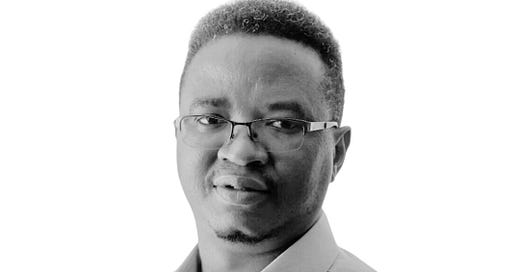Welcome to “Global Witness, Globally Reimagined.” You get a glimpse here of the kind of work that I do both at Church Mission Society and Missio Africanus where I help students of all levels (from unaccredited courses to PhD) explore the theological (and missiological) implications of the rise of World Christianity. In the newsletter, I focus on the subject of global witness in the context of the twenty-first century. Every Thursday, I share a thought that has spoken to me in the week, one or two resources that I trust will be helpful to you, and three exciting quotes about mission to give you something to think about as you go through your day. I pray one of these will energise you.
—
May I take this opportunity to tell you about our ACTS 11 Conference, which will take place on 26 and 27 September in Oxford? It will also be live-streamed, so you can participate from anywhere in the world. You can register here: www.churchmissionsociety.org/acts11.
1. Thought I Can’t Shake Off
I have found it extremely fascinating that at least 47 per cent of international migrants in the world are Christians. In realistic terms, that is, about 130 million followers of Christ are scattered away from their homelands — God’s people on the move to be counted among those of the diaspora, exiles.
If we count people displaced within their own countries, that percentage increases quite significantly. Again, these are millions upon millions of Christians of Christians living as sojourners and pilgrims, strangers in a world that needs the witness of the gospel of Christ. What a great opportunity to be Christ’s hands and feet in a world desperately needing to see God’s love expressed. Unfortunately, it looks like our missiology does not know what to do with migrants.
The Western nature of our missiology makes it difficult—if not impossible—to talk about migration in ways that make theological or missiological sense. There is a big gap in our missiology between missionaries and Christian migrants. Christian migration does not seem to interest many teachers of missiology and leaders of mission agencies. A lot of this may be attributed to the fact that Western missionaries, generally speaking, do not consider themselves to be migrants while, of course, Western (Christian) migrants hardly think of themselves as missionaries. In addition, most mission agencies tend to be so focused on sending missionaries (which is not necessarily bad) that they do not see the many millions of God’s people already on the move among as well as in other continents whose lives and ministries could use some equipping them so they can bear witness of the good news of God’s love and serve Christ in their ‘exiles.’
Asian scholars have something called ‘Diaspora Missiology.’ The Africans have ‘Reverse Mission’ (whatever this is). Yet, both these are marginal ‘missiologies’ for black and brown migrant peoples and they hardly connect with Asian and African migrant Christians who are simply living their faith in the diaspora, often without the missiological language of the academy.
As I prepare for the ACTS 11 Project Conference coming up, I wonder what a missiology that understands the exilic nature of the Christian life would look like. What if Christian migration and mission were indeed so deeply connected to be interchangeable? What if millions of Christian migrants were equipped to make disciples of the nations? (And what would it take for this to happen?) Take a look below. How many Christian migrants are in your area? How can you engage them?
2. Resources I am Enjoying
Video: Ruth Padilla DeBorst: “Fleeing the Hot Spots: Climate Change, Migration, and Mission.”
In this 2021 Alexander Duff Lecture at the University of Edinburgh entitled “Fleeing the Hot Spots: Climate Change, Migration, and Mission,” Latin-American evangelical theologian Dr. Ruth Padilla DeBorst shows how climate change—mainly caused by human activities—often leads to involuntary local and trans-border migration of people. She proposes a robust response to migration drawn from the book of Ruth in the Bible. She stresses how much is available to learn from a book that traces the story of climate refugees, having involuntarily migrated from Judah to Moab due to famine and later returning under different conditions. She highlights two thematic threads from the book for our missional engagements today. First, care for the vulnerable, which “is not optional in God’s economy.” Second, foreigners need to ensure they are a blessing to their new hosts, as Ruth was to the people of Judah. This is one rich missional conversation we currently need.
3. Quotes I am Pondering
Employing a missiology that appreciates both the giftings and relevance of the youths will produce an even more vibrant Christianity … with more churches looking more like a river that is kept alive by constant movement and energy, rather than an unadventurous and unperturbed lake. — Joseph Ola
In mission all theologies are challenged to recognise their own contextuality and at the same time their common Christian confession. — Kirsteen Kim
Missional ministry is not to reach out to the needy, but to form a new community where all are in need of community. — J. Frederick Marais
I pray that you will be faithful to the work God has for you this week.







Whatever reasons I may have for leaving my native Homeland Liberia 🇱🇷 seven years ago, it has dawned on me that I have been a sojourner, pilgrim, and an exile here in the USA-North America. That's why I continue to live out my faith in Christ daily and connect with both Christians and outside the church. Thanks a lot for sharing this reflection, Dr. Kwiyani!